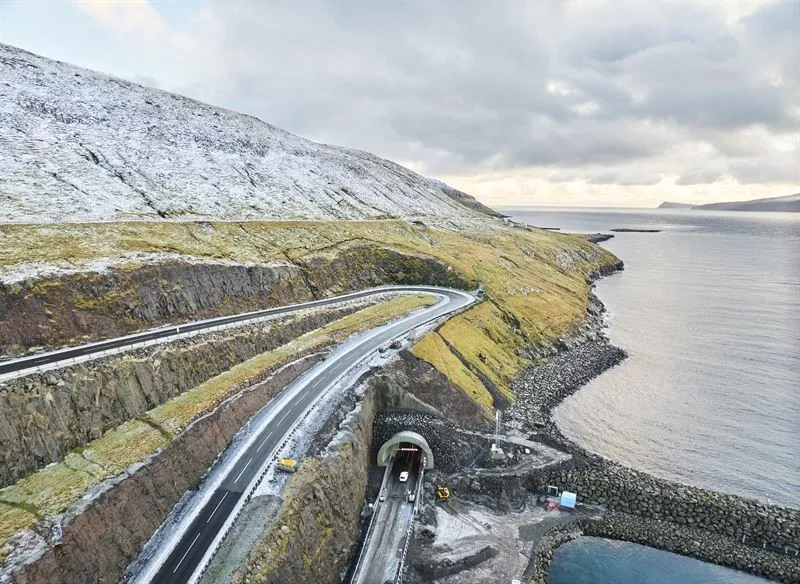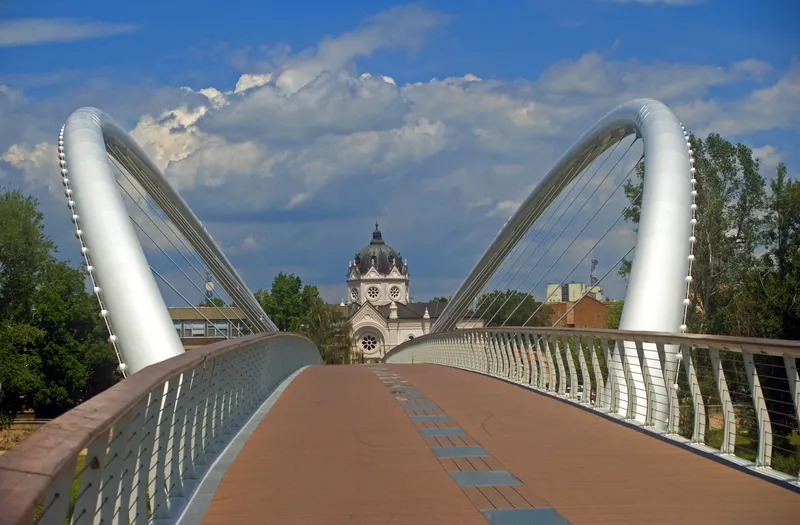Bosnia is cancelling a tender for part of its Corridor 5C project, an integral part of the class-A north-south central European route E73.
Route E73 runs around 700km from Hungary south through eastern Croatia to Bosnia and Herzegovina and the Adriatic Sea in the area of Ploče port. The longest part of this corridor goes through Bosnia and Herzegovina – nearly 340km.
Director of the Bosnian motorways company Autoput FBiH, Adnan Terzic, confirmed the cancelled tender to the Bosnian daily newspaper Dnev
March 13, 2017
Read time: 2 mins
Bosnia is cancelling a tender for part of its Corridor 5C project, an integral part of the class-A north-south central European route E73.
Route E73 runs around 700km from Hungary south through eastern Croatia to Bosnia and Herzegovina and the Adriatic Sea in the area of Ploče port. The longest part of this corridor goes through Bosnia and Herzegovina – nearly 340km.
Director of the Bosnian motorways company Autoput FBiH, Adnan Terzic, confirmed the cancelled tender to the Bosnian daily newspaper Dnevni Avaz. Work will be retendered for parts of the Pocitelj node-Pocitelj bridge and Pocitelj-Zvirovici section.
Terzic said that the tender from 2014 failed several reviews, including one from the European Investment Bank (EIB) which is financing the project. A new tender will be set up likely to be worth around €103 million but he gave no dates.
E73 consists mostly of two-lane roads with at-grade intersections, although in 2000s, around a third of the route was upgraded to motorway standard. The remainder of the route is being upgraded.
Early last year, Autoput FbiH announced that 120km of the 340km is complete and around anouther 100km would likely be completed by 2020.
In mid-2014, a 6km stretch of the highway between Sarajevo and Zenica was opened that included a 3km-loong tunnel. The March 1 tunnel, named after date of Bosnia's independence referendum, meant that the journey between the two cities was cut from one hour to 30 minutes.
The tunnel cost around €62 million had been under construction for several years, first by two Slovenian companies that eventually which went bankrupt, and later by a consortium of Bosnian companies, according to a report by Balkan Insight at the time. The tunnel is the longest in Bosnia and is one of the most important infrastructure projects to be completed since the 1992-5 war.
Route E73 runs around 700km from Hungary south through eastern Croatia to Bosnia and Herzegovina and the Adriatic Sea in the area of Ploče port. The longest part of this corridor goes through Bosnia and Herzegovina – nearly 340km.
Director of the Bosnian motorways company Autoput FBiH, Adnan Terzic, confirmed the cancelled tender to the Bosnian daily newspaper Dnevni Avaz. Work will be retendered for parts of the Pocitelj node-Pocitelj bridge and Pocitelj-Zvirovici section.
Terzic said that the tender from 2014 failed several reviews, including one from the European Investment Bank (EIB) which is financing the project. A new tender will be set up likely to be worth around €103 million but he gave no dates.
E73 consists mostly of two-lane roads with at-grade intersections, although in 2000s, around a third of the route was upgraded to motorway standard. The remainder of the route is being upgraded.
Early last year, Autoput FbiH announced that 120km of the 340km is complete and around anouther 100km would likely be completed by 2020.
In mid-2014, a 6km stretch of the highway between Sarajevo and Zenica was opened that included a 3km-loong tunnel. The March 1 tunnel, named after date of Bosnia's independence referendum, meant that the journey between the two cities was cut from one hour to 30 minutes.
The tunnel cost around €62 million had been under construction for several years, first by two Slovenian companies that eventually which went bankrupt, and later by a consortium of Bosnian companies, according to a report by Balkan Insight at the time. The tunnel is the longest in Bosnia and is one of the most important infrastructure projects to be completed since the 1992-5 war.








